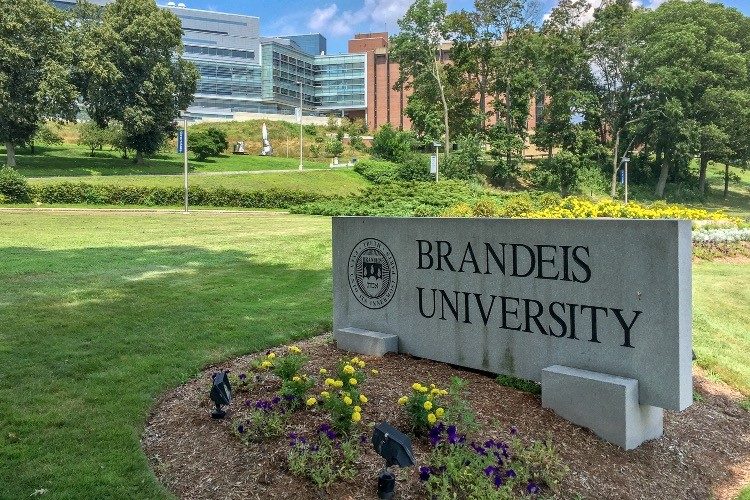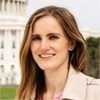
The Prevention, Advocacy & Resource Center (PARC) at Brandeis University in Massachusetts has released an “Oppressive Language List” on its website that encourages the school community to cease using words and phrases that are deemed to “perpetrate and perpetuate oppression.”
The PARC recognizes language as a “powerful tool,” and says, “As a community, we can strive to remove language that may hurt those who have experienced violence from our everyday use,” equating actual, physical violence with hurt feelings. The PARC offers to use more inclusive, “more-neutral” language.
The list consists of five categories: “Violent Language,” “Identity-Based Language,” “Language That Doesn’t Say What We Mean,” “Culturally Appropriative Language,” and “Person-First Alternatives.”
On the “violent” section of the offensive language list are commonly used terms such as “killing it,” “take a shot,” and even a “woke” “trigger warning.” Instead of complimenting someone and saying they are “killing it,” the list recommends that one just say “great job” or “awesome” to avoid equating success with murder. “Taking a shot” is deemed to needlessly use imagery of hurting someone, and “trigger” is said to “have connections to guns,” and guns have a negative connotation to “many people.”
A phrase “rule of thumb,” or a general rule, also made it to the list, since “this expression allegedly comes from an old British law allowing men to beat their wives with sticks no wider than their thumb.”
The word “picnic” — as something apparently (falsely) associated with lynching — was also on the list, but has been removed.
The “Identity-Based” list is predictably longer, since intersectional worldview strives to divide people into many identity sections — race, gender, sexual orientation, and many others. Therefore, it is not recommended to address people as “ladies and gentlemen” — a common way to address a group of people, particularly in a formal, public setting used since 14th century — since it does not include those who don’t identify as “ladies” or “gentlemen.” One may use “people,” “friends,” and “loved ones” instead. Same with “you guys,” which may be switched to “folks/folx,” or even “y’all.”
Similarly, the words “policeman,” “congressman,” and even “freshman” have “man” in them, and they “lump all people under masculine language.”
Then, since not all black people are from Africa, use “Black.” Generic “people of color” should be replaced with “BIPOC” (Black, Indigenous, and People of Color), as “this term intentionally names Black and Indigenous folks who are disproportionately impacted by violence in the US, even more so than other people of color.”
It is not recommended to use words such as “crazy,” “insane,” or “wild,” since it stigmatizes people with mental conditions.
Refrain from using grammatically incorrect phrases such as “long time no see,” or “no can do.” It is stated that expressions using broken English originate from stereotypes making fun of non-native English speakers, particularly applied to indigenous people and Asians.
Certainly, don’t use any slurs for LGBTQ+ people, as they are “hateful.”
The “language that doesn’t mean what we say” category is an intriguing one. The list encourages students and staff to bravely name the phenomenon that needs to be addressed. Vagueness such as “everything going on right now” should be expressed “for what it is”: Say “police brutality, protests, BLM, COVID-19, etc.” unless you want to “avoid accountability” or “miscommunicate.”
“Victim” and “survivor,” apparently, “can make a person feel reduced to an experience.” On the other hand, if a person identifies with those words, “honor them by using that word!” the list says.
Cultural appropriation is a no-no. “Tribe,” “powwow,” and “spirit animal” hold meaning in a particular culture and may be “misused” without proper context and offend someone.
Finally, the “person first” list discourages students and staff from using labels that “frame people’s activities, attributes, and more as a part of the person rather than the whole person.” Unless, again, a person identifies as such. It is not “addict,” but a “person with a substance use disorder,” not a “homeless person” but a “person experiencing housing insecurity,” etc.
The PARC provides an option to submit a suggestion for the list.
Campus Reform found the university uses words from the “oppressive list” on their website.
Representative Elise Stefanik (R-N.Y.) — who’s co-sponsoring a bill called the Campus Free Speech and Restoration Act — called the list “an all-out assault on our First Amendment” and an example of “the Far-Left cancel culture happening in our schools.”
“The Far Left’s radical overhaul of education is un-American. They push so-called ‘safe spaces’ to eliminate diversity of thought, critical thinking, and intellectual curiosity and replace it with Socialist brainwashing, groupthink, and Marxist ideology like Critical Race Theory,” she said in a statement.
The “Oppressive Language List” surfaced just weeks after Brandeis administrator Kate Slater, who is white, was revealed to have said on social media, in defense of Critical Race Theory being taught at the university, “All white people are racist in that all white people have been conditioned in a society where one’s racial identity determines life experiences/outcomes and whiteness is the norm and default. That includes me!”
Brandeis, which is located outside Boston, last year enrolled about 3,500 undergraduates and 2,000 graduate students, according to its website.
Tuition costs nearly $60,000 a year, and room and board cost an additional $16,450.
College campuses across the country used to be arenas for debauchery and loose inhibitions, but many these days function as micromanaged zones of political correctness where students and faculty alike walk on eggshells for fear of offending someone.
Just like the students at Brandeis, students at the University of New Hampshire had their vocabulary drastically reduced for the sake of political correctness. The university provided a series of resources, including a “bias-free language guide” that instructs students to stop using a long list of seemingly inoffensive and common words.
A UCLA professor was called racist and guilty of a “micro-aggression” against black students for correcting grammar and spelling mistakes on their papers.
At Stevenson College in Santa Cruz, California, administrator Dr. Carolyn Golz was forced to apologize for allowing the students to serve burritos in the presence of spaceship drawings, because of the connotations with “aliens.”
Even the phrase, “there is only one race, the human race,” is offensive because it denies “the significance of a person of color’s racial/ethnic experience and history.” “America is the land of opportunity,” implies that “people of color are lazy and/or incompetent and need to work harder.”
The liberal universities know that the pen is sometimes mightier than the sword. As The Federalist’s Benjamin R. Dierker put it in a 2018 article, “The righteous aim of the American experiment was to create a nation of laws, not of men. Today, written law is not supreme, because words themselves are decaying. Judges can decide on meaning, politicians can misuse words with abandon, and activists can weaponize linguistic drift to brainwash uneducated voters.”



